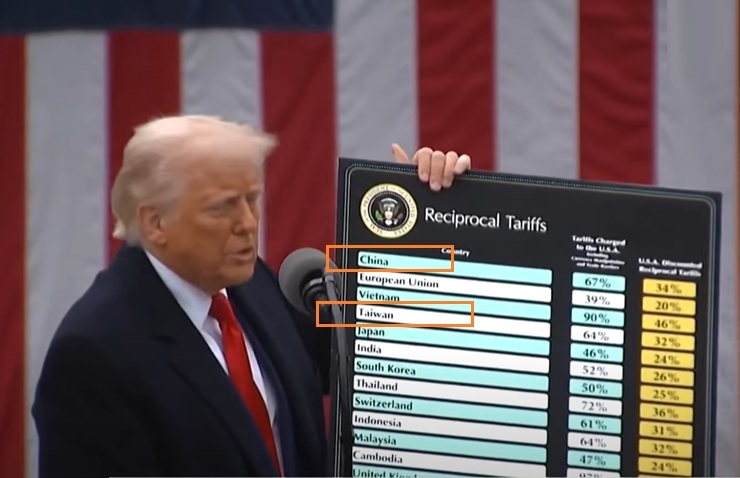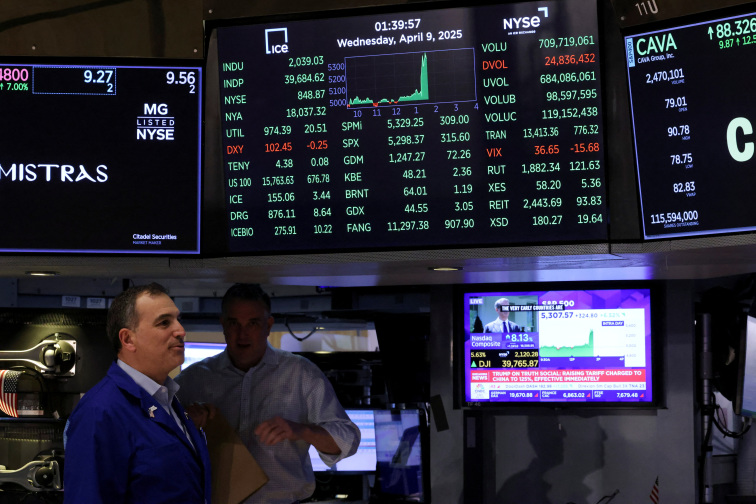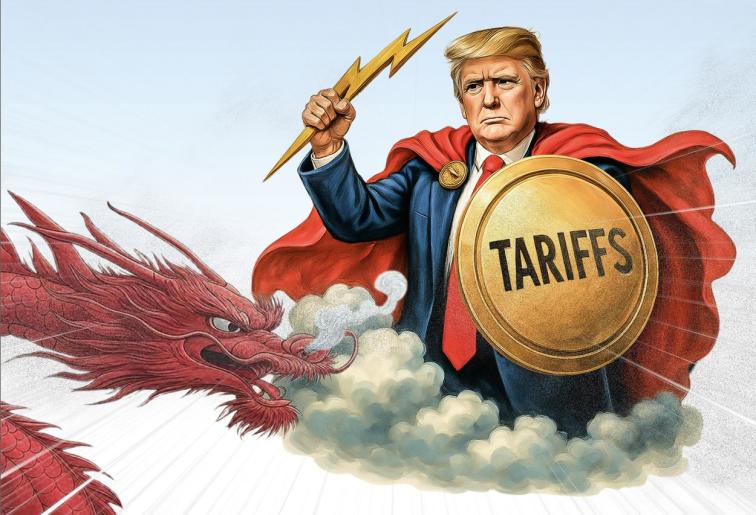(The Center Square) – President Donald Trump paused his latest wave of tariffs on Wednesday after making big promises to Americans about how the tariffs would reshape the global economy with the U.S. at the center.
"I thought that people were jumping a little bit out of line," Trump said. "They were getting yippie, you known a little yippie, a little afraid."
In sports, the yips refer to a sudden and unexplained loss of ability to execute motor skills in veteran athletes, such as a golf swing or putt. While once thought to be linked to performance anxiety, it "now appears that some people have the yips due to a neurological condition affecting specific muscles," according to the Mayo Clinic.
"The bond market is very tricky. I was watching it," Trump said Wednesday. "But if you look at it now, it's it's beautiful. The bond market right now is beautiful. But yeah, I saw last night where people were getting a little queasy."
Trump said he did what no other president had done by implementing tariffs and almost immediately pausing them again, as he did earlier in his second term with Canada and Mexico.
"No other president would have done what I did," Trump said Wednesday after announcing the pause on Truth Social. "And it had to be done. What was happening to us on trade ... not only with China, but China was the biggest abuser in history ... somebody had to do it. They had to stop it because it was unsustainable."
Trump said his tariffs are bringing in $2 billion a day, although he didn't say how the tariffs pause would affect that figure.
Trump appeared to send conflicting message about what comes next.
"Look, nothing's over yet," the president said. "But we have a tremendous amount of spirit from other countries, including China. China wants to make a deal."
Trump said the Chinese people and Xi Jinping, president of the People's Republic of China, were proud people, but ready to make a deal.
"They don't know quite how to go about it, but they'll figure it out," Trump said.
Trump said leaders from more than 75 countries have indicated they want to make a trade deal after Trump announced the reciprocal tariffs on April 2, which he referred to as "Liberation Day" for U.S. trade.
"We'll see how it all works out. I think it is going to work out amazing," Trump said. "I think that our country – at the end of a year or shorter – but I think we're going to have something that nobody dreamt possible."
Trump said he wants fair deals.
Earlier on Wednesday, Trump ordered a 90-day pause on his wave of reciprocal tariffs, but he turned up the pressure on China by boosting his 104% tariff on imports from China to 125%.
"Based on the lack of respect that China has shown to the World's Markets, I am hereby raising the Tariff charged to China by the United States of America to 125%, effective immediately," Trump wrote on Truth Social. "At some point, hopefully in the near future, China will realize that the days of ripping off the U.S.A., and other Countries, is no longer sustainable or acceptable."
Trump said he would pause the remaining tariffs as he looks to make trade deals.
"Conversely, and based on the fact that more than 75 Countries have called Representatives of the United States, including the Departments of Commerce, Treasury, and the USTR, to negotiate a solution to the subjects being discussed relative to Trade, Trade Barriers, Tariffs, Currency Manipulation, and Non Monetary Tariffs, and that these Countries have not, at my strong suggestion, retaliated in any way, shape, or form against the United States, I have authorized a 90 day PAUSE, and a substantially lowered Reciprocal Tariff during this period, of 10%, also effective immediately," Trump continued. "Thank you for your attention to this matter!"
On Monday, the White House denied that Trump was considering a 90-day pause on tariffs.
Critics argue the tariffs will hurt the economy and the nation's trading relationships abroad and that costs will be passed on to American consumers.
Trump and his backers have said tariffs would cause some temporary pain but that they would also lead to a new wave of domestic manufacturing and raise federal revenue.
Treasury Secretary Scott Bessent said it was all part of the plan.
"We saw the successful negotiating strategy that President Trump implemented a week ago today. It has brought more than 75 countries forward to negotiate," Bessent said Wednesday. "It took great courage for him to stay the course until this moment."
Bessent said a universal 10% tariff will remain for all imports on top of a 25% tariff on imported passenger vehicles. Trump's steel and aluminum tariffs will also remain in place.
"I think the market now understands everything they saw last Wednesday was a ceiling, and now we have a temporary floor," Bessent said.
Trump's decision to suspend tariffs came after tough questions from Republicans, including U.S. Sen. John Kennedy, R-La.
"I just don't know what his goal is right now," Kennedy said earlier in the day after comparing Trump to a dog chasing a car and catching it.
"President Trump has been a Rottweiler here, but now he's the Rottweiler who has caught the car," Kennedy said. "That's the moment we are in now. My question is: What is he going to do with the car?"
Trump has made big, bold promises about his tariffs. He has said tariffs will make the U.S. "rich as hell," bring back manufacturing jobs lost to lower-wage countries in decades past and shift the tax burden away from U.S. families. He's also promised to help working Americans with his tariffs.






News magazine bootstrap themes!
I like this themes, fast loading and look profesional
Thank you Carlos!
You're welcome!
Please support me with give positive rating!
Yes Sure!